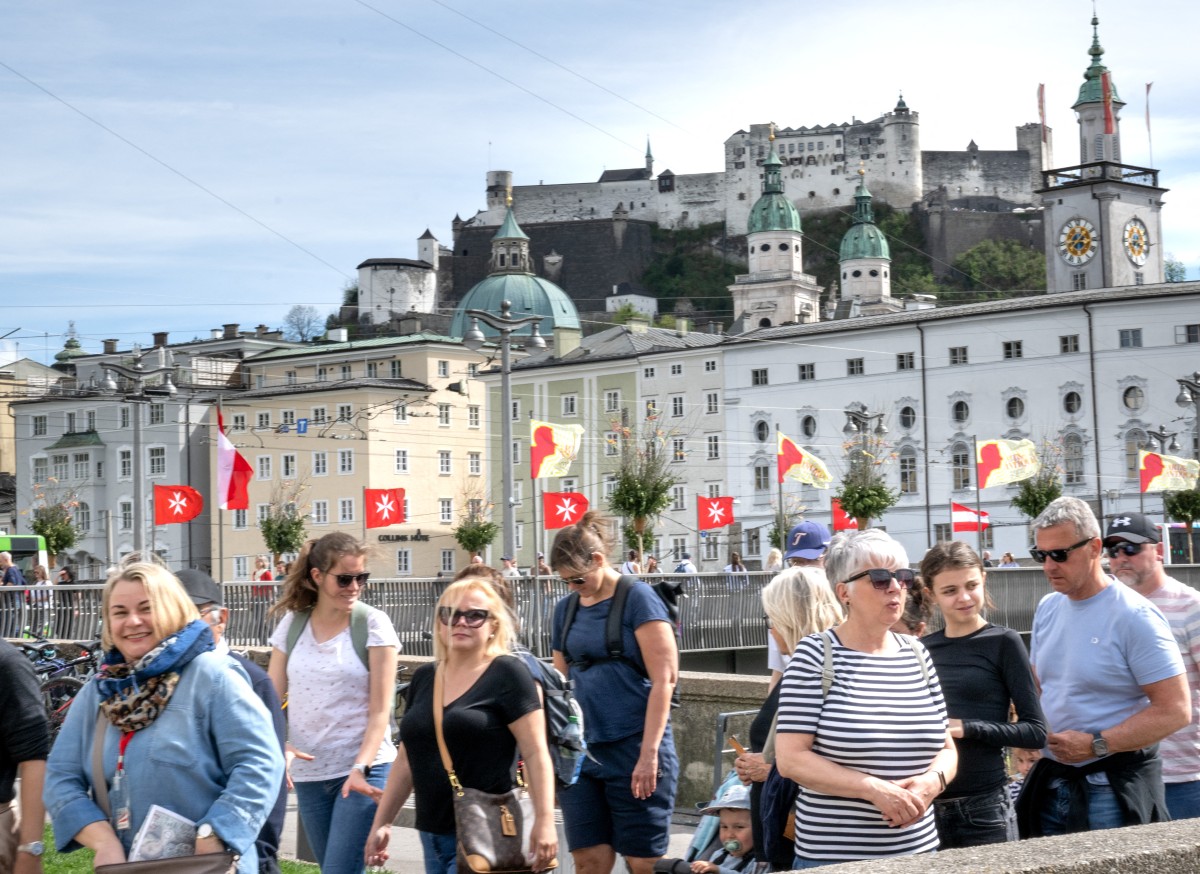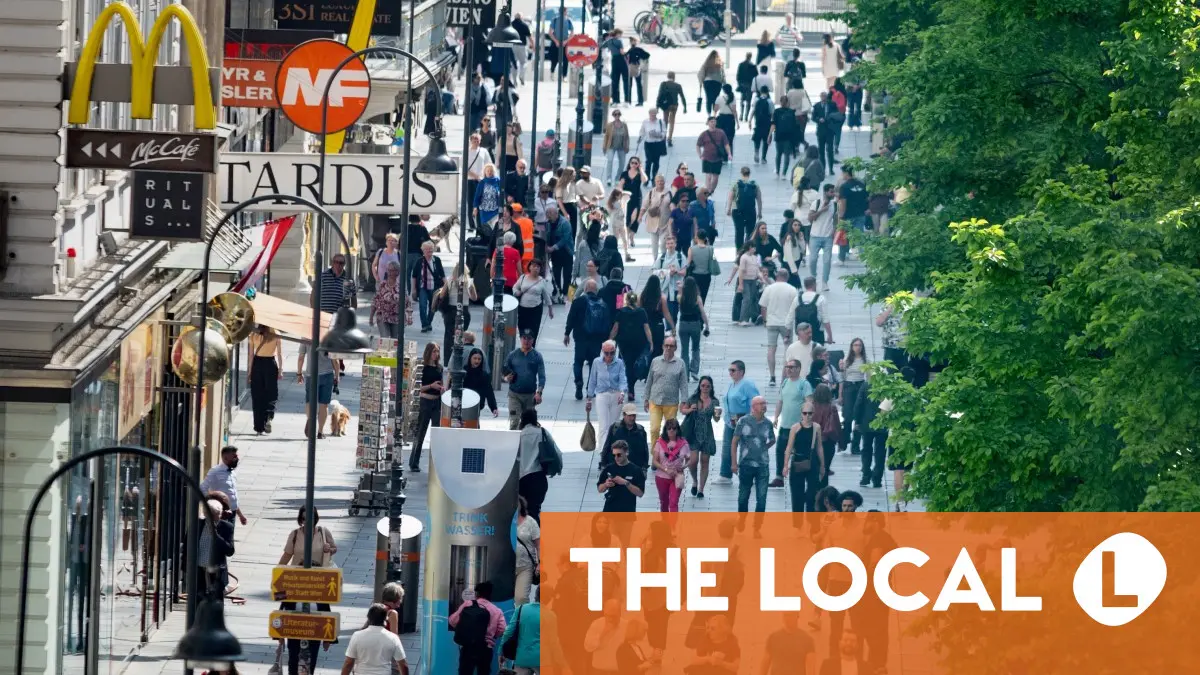Austria slipped one place but still ranks in the top five in the Global Peace Index 2025. What makes the country so peaceful and safe?
With increasing conflicts and war zones, the world is not in a good place, to say the least. And the latest Global Peace Index reflects that.
The report, published earlier this summer by the Australian Institute for Economics & Peace (IEP), details how world peace is at its lowest level since the index was introduced 19 years ago, with 59 active conflicts recorded.
“The 2025 Global Peace Index reveals a fundamental reshaping of the global order not seen since the Cold War,” the report states. It shows a record decline in global peacefulness amid “rising conflict deaths, accelerating geopolitical tensions and the erosion of social cohesion”.
Despite these developments, Austria ranked in fourth position in the global index, marking it as one of the most peaceful countries in the world.
Why is Austria fourth in the global peace ranking?
The Alpine nation slipped one place since the last ranking but but continues to perform strongly across key areas, including military expenditure, safety, and security.
Austria received a score of 1,294 on the index. For comparison, Iceland – once again the most peaceful country in the world – scored 1,095. In the Global Peace Index, the lower the score, the greater the level of peace.
Joining Iceland at the top are Ireland and New Zealand, which round out this year’s top three.
The main reason behind Austria’s reputation as a peaceful and secure nation is its neutrality policy.
The Austrian State Treaty, which was signed in October 1955, declares that Austria cannot join a military alliance (such as NATO), allow foreign military bases within Austria or participate in a war. The status of neutrality is recognised internationally.
The neutrality document states: “For the purpose of the permanent assertion of its independence externally and for the purpose of the inviolability of its territory, Austria freely declares its perpetual neutrality. Austria will maintain and defend this with all means at its disposal.”
READ ALSO: The history behind Austria’s neutrality
Austria’s national day is held every year on October 26th to mark the anniversary of the neutrality declaration, which is also the date when the last of the allied troops left the country, 10 years after the end of World War II.
Polls in recent years signal that a majority of Austrians still believe that staying neutral is the best course.

Tourists explore the historical part of the city of Salzburg, Austria on April 16, 2025. (Photo by JOE KLAMAR / AFP)
Supporters say the policy allows Austria to focus its attention and resources on more domestic matters, although Austria does still have its own armed forces – and even has a form of conscription. Members of the military are generally deployed on peacekeeping missions.
Armin Pfurtscheller, owner of the SPA-Hotel Jagdhof, told the BBC: “Austria’s decades-long policy of neutrality means the nation invests in its people instead of conflicts.”
This contributes to a feeling of peace and stability in the country.
READ ALSO: Why isn’t Austria in NATO?
Advertisement
What about crime levels within Austria?
The global peace ranking looks at the bigger picture of security in countries and regions across the world rather than local crime.
In general Austria is a safe country to visit and to live in. The capital Vienna, for instance, regularly tops list as one of the most liveable places in the world, in part due to its low crime rates.
EAD ALSO: Is Vienna a safe city to visit?
But crime does happen. According to Statistics Austria, 27,717 convictions were recorded in Austria in 2024, a 1.6 percent increase from 2023.
The overwhelming majority of crimes in Austria are related to property – robbery and theft, with 32 percent of all convictions recorded in this category.
This was followed by crimes to ‘life and limb’ at 18.5 percent. These are crimes involving violence to a person, such as assault and murder.
The third highest segment of criminal convictions recorded in Austria were for drug-related crimes, constituting 13.5 percent of all convictions.
Although it is rare there is also a high threat of terrorist attacks happening in Austria, as is the case in most other European countries.
Do you feel safe in Austria, let us know in the comments section below.
Advertisement
What else does the Global Peace Index tell us?
Overall, Western and Central Europe remains “the most peaceful region in the world on the 2025 GPI and is home to eight of the 10 most peaceful countries in the world,” says the index.
However, a deterioration in peacefulness of 0.57 percent was logged over the past year.
Unsurprisingly, the reasons behind the drop are linked to the focus on military.
Advertisement
“The conflict between Russia and Ukraine has led to many European countries reassessing their level of military spending and general combat readiness, with 24 of the 33 countries in this region recording a deterioration on this domain over the past year,” said the report. “The Ongoing Conflict and Safety and Security domains both improved slightly.”
Iceland has taken the number one spot in the IEP ranking as the world’s most peaceful country since 2008. It scored highly across all the domains and even recording a 2 percent improvement this year.
“Iceland is the most peaceful country in the world by a considerable margin, with the gap in peacefulness between the first two countries on the 2025 GPI being the same size as the gap between the second and 10th ranked countries,” notes the report.
At the other end of the scale, Russia ranks as the least peaceful country in the world followed by Ukraine and Sudan.
